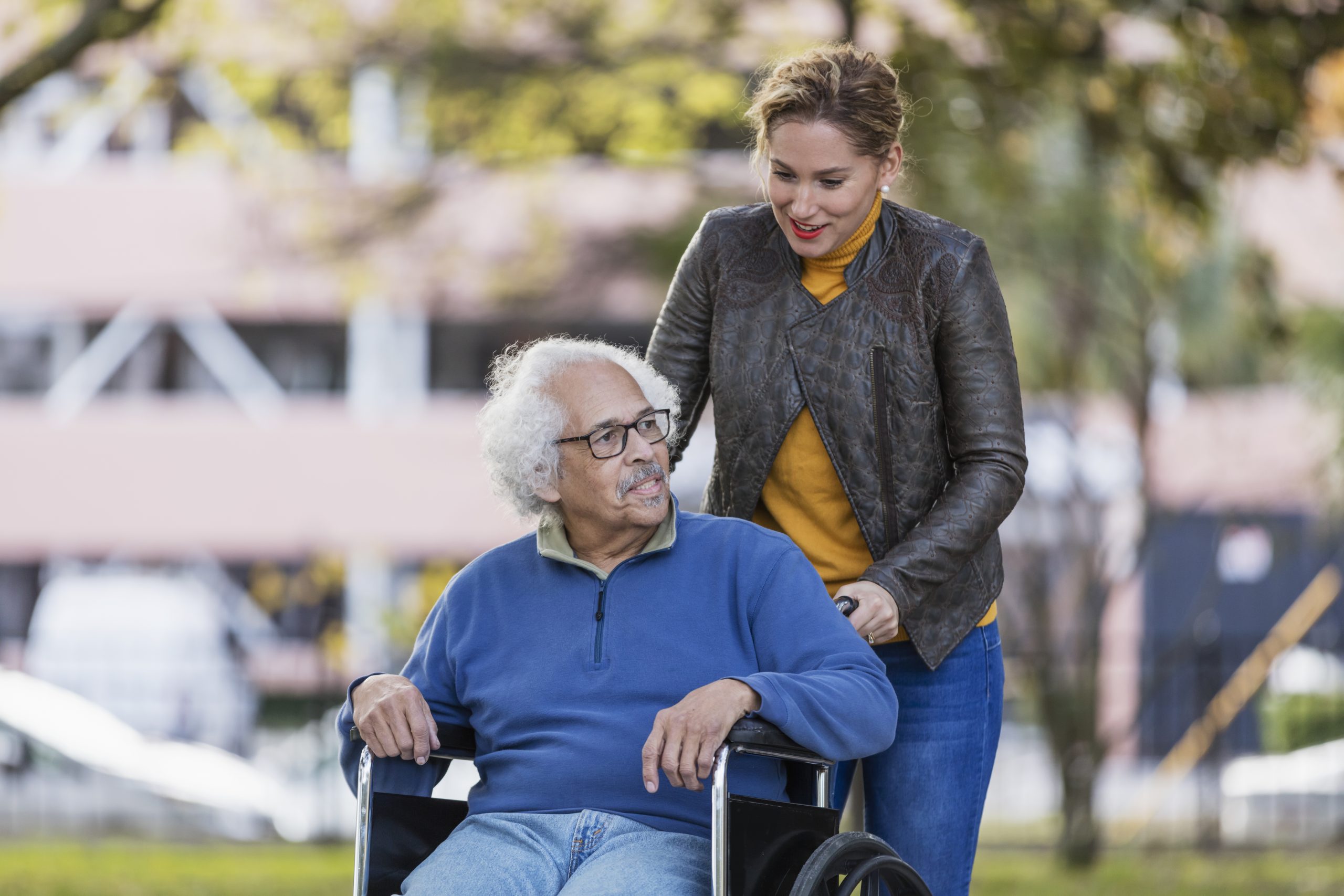There is a grieving process that accompanies a loss of mobility, and other disabilities. Loss of any kind takes a period of adjustment and implementation of innovation can improve quality of living in some situations. When you experience a loss of mobility, aids and equipment may help individuals cope with their new circumstances.
Adapting to loss can involve a period of grief. Grief is not so much an isolated experience as it is a series of phases that, hopefully, lead to some sort of acceptance or reconciliation. When you lose mobility or have a decline in health, function, or quality of life, grieving is normal. Individuals adapting to a loss of mobility may experience the emotional stages of grief and mourning, but please remember that a loss of mobility doesn’t have to mean a loss of independence.
Yes, you can experience grief from a loss of mobility; the following tips can make the transition easier:
Learn the Stages of Grief
Do you know about the stages of grief? Grief is not always as simple as mourning the loss. Most people go through periods of denial, disbelief, sadness, anger, and acceptance. Grieving the loss of a person or thing, like mobility, is not always a linear path, but a meandering one that may revisit previous grief phases along the way.
Mourning the loss of mobility often involves grieving the loss of a life once lived. Things that you previously did or enjoyed may be less feasible now. The loss may be so profound that you go through complicated grief processes, that could include trauma or depression. Everyone copes with changing life conditions differently- knowing the phases can help you identify what is to come and remind you of the light at the end of the tunnel.
Reinvent Yourself
Are you grieving who you were before you lost mobility? None of us are the people that we used to be; instead of looking back, work on what you want to be in the future. Reinvent yourself! It is never too late to evolve and change. Make it a point to do things differently and look at life in a fresh way.
Become a new version of yourself! Savor experiences, practice gratitude, and get in tune with your spiritual side. Find activities or hobbies that bring peace; do work that gives to others. These are rewarding experiences that can completely change how you perceive the world around you as well as how you look at your own existence. If you are unsure how to begin, a therapist or counselor is a good start. Also, practicing your own religion or speaking with clergy can be helpful.
Talk to Someone
Overcome feelings of isolation and hopelessness by talking and connecting with others that have similar, shared, or familiar experiences. This can be quite liberating, as you discover that you are not alone in your plight, nor do you need to surrender to limitations. Groups, loved ones, or coworkers may prove to be that lifeline that you need to move forward, adapt, and change to your new or modified circumstances.
Treat yourself Gently
There is no timetable or deadline for grief; it can come and go, ebb and flow, at will. What you can do is treat yourself gently during this time. Don’t beat yourself up for feeling sad or think negatively about your situation or abilities. Instead, work on treating and talking to yourself kindly. This can be life-changing. We are usually our own worst critic, so by affirming and reinforcing positivity, we can and will do better.
Consider this: if someone you cared about was going through grief, what would you say to them? You would likely be sympathetic, kind, and caring so, why not treat yourself the same way? Just as you can comfort someone else with your words and sentiments, you can do this for yourself, too.
Improve your Environment
Tackle your mobility challenges head-on with improvements to your home environment that facilitate access and accessibility, too. Mobility devices and adaptive aids can help make everyday tasks easier, and in some situations, safer, too. Consider such efforts to be instrumental in preserving your own autonomy and independence, invaluable tools, really.
Here are some suggestions:
- Install handrails and grab rails
- Buy a portable ramp for wheelchair access
- Talk about stair lifts in the home
- Implement technology to answer doors and turn on lights, etc.
- Widen the doorframes and smooth-out thresh-holds in doorways
- Implement personal alarms and fall sensors for safety
Stop grieving the limitations or losses that you have experienced with quality mobility aids from Pacific Mobility. Accessibility and autonomy can improve overall quality of living and make life’s transitions and adjustments easier to adapt to. Call or visit to learn more today.
President, Husband, Father, Grandfather Graduate of UC Davis- Bio Sci Major- Go Aggies! Jeff has extensive experience in all of Pacific Mobility’s products and services, and specializes in accessibility products as well as stairlifts, ceiling lifts and custom wheel chairs. His hobbies include spending time with family, gardening, mountain biking, exercising and off road motorcycle riding.
24 years as Owner/President of Pacific Mobility Center – selling, installing, and servicing stairlifts, porch lifts, ceiling lifts, pool lifts, handicap ramping, specialty wheelchairs, scooters, power wheel chairs, and other power mobility devices
Certified Environmental Access Consultant since 2008
Licensed General Contractor since 1998
Certified Aging in Place Specialist since 2016
Board Member for Home Access Professionals
Member of Association of Members of the Accessibility Equipment Industry (AEMA)




